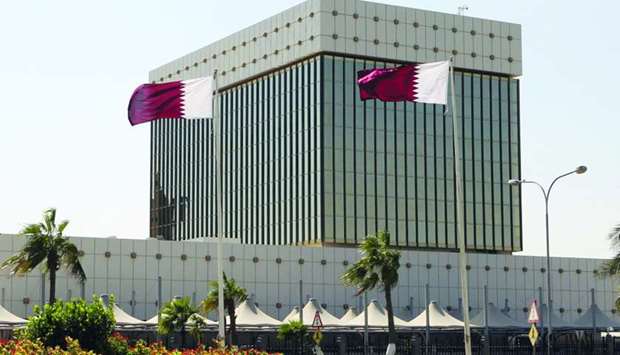Further interest rate cuts announced by Qatar Central Bank (QCB) on Monday is a “prompt follow-up” of the country’s QR75bn economic and financial stimulus package, the Economist Intelligence Unit (EIU) has said in an update.
This, EIU noted, is aimed at easing local bank-lending conditions and thereby mitigating the effect on the domestic economy of the global spread of the coronavirus (Covid-19). The economic and financial stimulus package was announced by the Qatar’s Supreme Committee for Crisis Management (SCCM). QCB announced interest rate cuts on March 16, following the US Federal Reserve’s (Fed) decision to cut its key funding rate by a further 100 basis points (1%) to 0-0.25% in a surprise announcement on March 15 as the economic and financial fallout from the global pandemic widened.
The QCB reduced its deposit and repurchase rates by 50 basis points (0.5%) each to 1% and reduced its key lending rate by 100 basis points (1%) to 2.5%, less than two weeks after the QCB followed the Fed by cutting its key interest rates on March 4.
According to EIU, the “QCB tends to move in lockstep” with the Fed, and the latest cut reaffirms the “commitment” of the QCB to maintaining the peg of the Qatari riyal to the US dollar.
“We expect the QCB to continue to track the Fed’s rates and for the peg to be maintained throughout the 2020-24 forecast period,” EIU noted.
“The overriding impact of the coronavirus on Qatar will come from the decline in hydrocarbons prices,” EIU said.
The stimulus package announced by the SCCM — totalling QR75bn and equivalent to about 10% of GDP — will be aimed at supporting the private sector in Qatar during the coronavirus pandemic, although specific details about how the funds would be spent were not released, it said. EIU noted that the package also includes exempting food and medical goods from customs duties for the next six months — as long as the saving is passed on to the consumers — and rent relief for industrial facilities for six months.
Furthermore, Qatar Development Bank will postpone the repayments of all borrowers for six months, and the government will increase its investments in the Qatar Stock Exchange by QR10bn in an attempt to boost the market.
The QCB will provide additional liquidity to banks operating in the country as authorities try to provide relief to businesses and retail customers.
Qatar’s stock market (QSE) responded favourably to the measures being taken by the authorities, gaining 1.5%, EIU said referring to Monday’s trade.
“Qatar has been relatively proactive in tackling the global pandemic and has already implemented strict coronavirus measures, including the closure of schools and universities as well as the cancellation of major events, such as the MotoGP superbike series,” EIU said.
In addition to the economic and financial stimulus package, a number of precautionary measures were also announced by the SCCM.
These include the suspension of all incoming flights into Qatar for two weeks. The SCCM did, however, confirm that Qatari citizens would be allowed into the country after they self-quarantine for two weeks.
Furthermore, all forms of public transport were suspended from March 15, and all employees over the age of 55, in addition to pregnant women and people suffering from chronic diseases, such as diabetes, heart and kidney disease and stress, are to be allowed to work remotely.
With regards to the education system, students in Qatar will begin taking classes remotely from March 22, with high school exams going ahead as originally planned, EIU noted.
Business / Business
QCB’s latest rate cut a prompt follow-up of Qatar’s QR75bn stimulus package: EIU

Qatar Central Bank (QCB)

